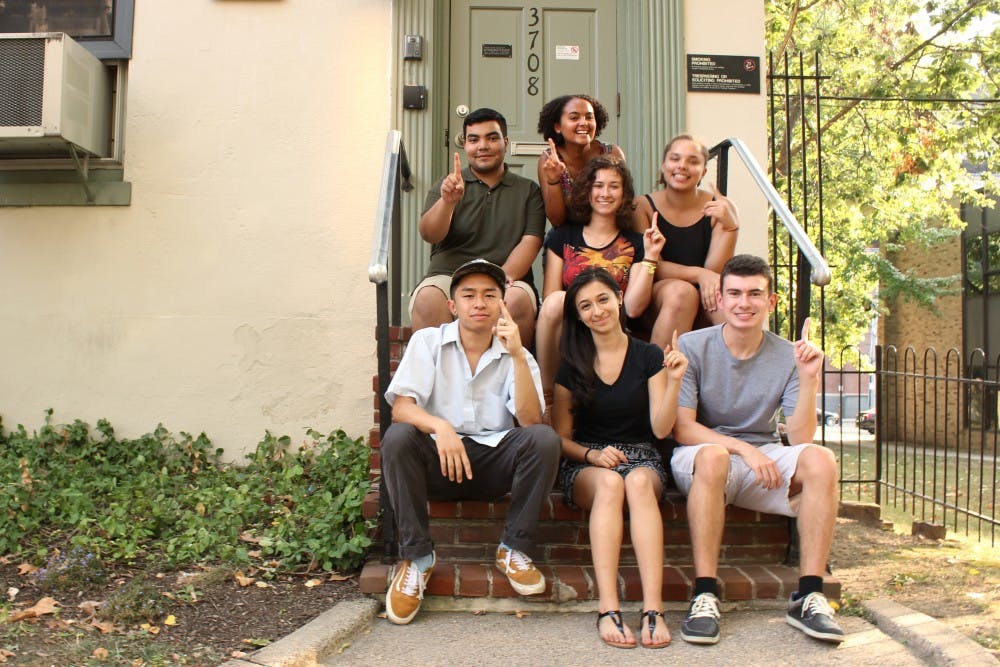For first-generation students, locating resources, navigating college life and finding a community of people who share similar experiences can be difficult. But a new move by Brown University could be the answer colleges including Penn are looking for.
After Brown’s recent announcement that it will build a First-Generation College Student Center this summer, first-generation students at Penn hope that one day Penn can follow this path as well. The center — which was created after a steady stream of student-driven efforts — will serve as a dedicated home for all the resources offered to first-generation and low-income students at Brown and will be the first of its kind at any Ivy League university.
Penn First founding member and College junior Juana Granados says that one of the main reasons Brown is the first to have this type of resource is probably because their student group for first-generation and low-income students has been active for almost a decade. The group’s growth and longtime presence on campus over the years demonstrated a visible need to the university. And 16 percent of Brown students are first generation — the largest at any Ivy — compared to 12 percent at Penn and similar numbers at the other seven schools.
Penn First, Penn’s student group for first-generation and low-income students, was established just last year by a group of undergraduates. Because of this, Granados realizes that creating a center would be a long-term goal.
“It’s something that we as the other groups also want to get going but we know it’s something that’s going to take a lot of time — to become a force on our campus large enough for it to actually be something we can accomplish,” Granados said.
A recognition of the struggles faced by first-generation students — especially at prestigious universities where most students come from affluent backgrounds — has been coming into light over the years. This February marked the second ever Inter-Ivy, First-Generation College Students’ Conference, which is devoted to discussing the problems first-generation and low-income students face.
Ricky Gresh, director for campus life projects at Brown and a future co-director of Brown’s FGLI Center, states that having an actual space for first-generation students is essential.
“Growing research shows that in order for first-generation students to succeed, we must affirm their identities and experiences and create a sense of belonging for them on campus,” he said in a press release from Brown. “We have to go beyond offering resources and expecting students to have the tools to navigate them on their own, to building trust and relationships with students and meeting them in their spaces.”
Granados said that having a community of students who can share these experiences is extremely helpful. She herself experienced isolation when she arrived at Penn, and discussions with other Penn First members were the first times in her three years here that she felt there were others who understood what she was going through.
She agreed with Brown that having a center would not only help centralize resources available, but like the other centers on campus, it would create a safe space where students can accept that part of their identity and meet similar students. It would also reduce the stigma of being a first-generation student on campus. She emphasized, though, that she and other first-generation students are extremely grateful for all Penn does and recognize that they are privileged to be at the University.
Over the years Penn has been pushing for including more first-generation and low-income students and providing more support for them under the leadership of Amy Gutmann, who is a first-generation student herself.
According to an email from Vice Provost of University Life Valarie Swain-Cade McCoullum, Penn wants to work closely with first-generation students to provide programming and improve resources available as well. In fact, they are currently scheduled to hold a meeting with first-generation and low-income students to discuss further options this coming Monday.
“As a first-generation, low-income student myself, this partnership is more than a professional priority: support of FGLI students is my personal passion,“ McCoullum wrote.
McCoullum says some of the topics of focus at the meeting will be defining first-generation and low-income program space and administrative support, increasing access to research and internships and increasing FGLI student access to graduate and professional opportunities.
“This isn’t something we just want to push on administration. This is something that we want to work for as well, whether that’s reaching out to other student groups [at other schools to create a model and tangible plan of action] or actively finding funds and ways that we can contribute to this as well,” Granados said.









